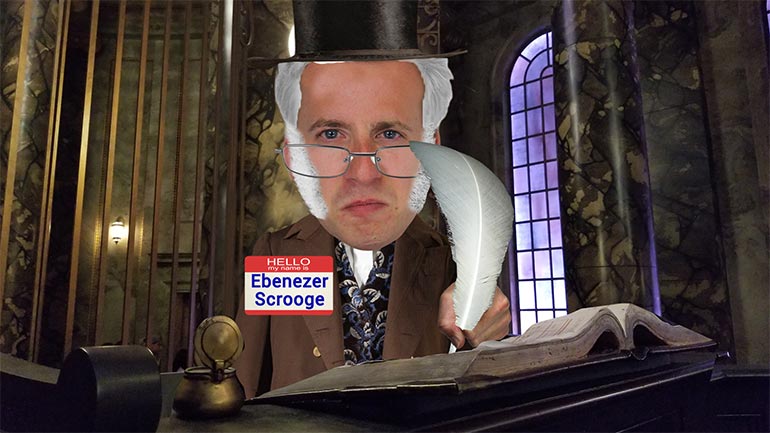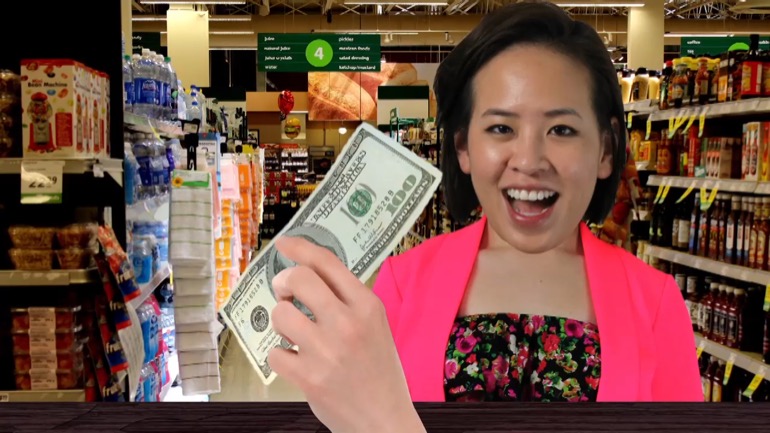ShmoopTube
Where Monty Python meets your 10th grade teacher.
Search Thousands of Shmoop Videos
Tech Videos 99 videos
What is covariance? Covariance is the comparison of how assets move in the markets. Positive covariance is when assets move in tandem, such as when...
What is After Hours Trading/Extended Trading? After hours trading describes any trades made after the market closes or before the market opens. Bec...
What is volatility? In the world of investing, volatility basically means riskiness. It looks at the returns for stocks or indexes, and if they are...
Finance: What is an Exchange Rate? 358 Views
Share It!
Description:
What is an Exchange Rate? An exchange rate is what a domestic currency is worth in a foreign currency’s denomination and vice versa. An exchange rate can be floating, such as in the Forex spot market, where valuations can change by the second in real time, or fixed, meaning the currency has a peg with another currency, such as the Hong Kong dollar to the US Dollar 7.84 to 1 peg.
- Social Studies / Finance
- Finance / Financial Responsibility
- College and Career / Personal Finance
- Life Skills / Personal Finance
- Finance / Finance Definitions
- Life Skills / Finance Definitions
- Finance / Personal Finance
- Courses / Finance Concepts
- Subjects / Finance and Economics
- Finance and Economics / Terms and Concepts
- Terms and Concepts / Accounting
- Terms and Concepts / Banking
- Terms and Concepts / Careers
- Terms and Concepts / Company Management
- Terms and Concepts / Credit
- Terms and Concepts / Econ
- Terms and Concepts / Forex
- Terms and Concepts / International
- Terms and Concepts / Investing
- Terms and Concepts / Tax
- Terms and Concepts / Tech
- Terms and Concepts / Trading
- Terms and Concepts / Trusts and Estates
Transcript
- 00:00
Finance a la shmoop what is an ex change rate? alright I give you two cleary's for
- 00:09
one cat eye you give me to come quat's for one banana with the peel on this [Person trades come quats for banana]
- 00:15
time thank you I give you forty two thousand three
- 00:17
hundred eighty two dollars for this new Ford Hemi truck with the awooga horn yep
- 00:23
these are all exchange rates marbles for marbles fruit for fruit and well dollars
Full Transcript
- 00:29
for trucks with awooga horns in place just do what you know... people off well in
- 00:34
more common financee parlance exchange rates focus on the trading back and
- 00:40
forth of national currencies while each country or region generally has its own [Selection of currencies appear and man holding an Uzi]
- 00:45
currency printing more of that currency lets the government pay its bills more
- 00:50
easily if it's not collecting enough dough in taxes but if it prints too much
- 00:55
of that currency well then it falls in value relative to the currencies of
- 01:00
other countries think about that you print lots of dollars and you have lots
- 01:04
of debt well then it's easy to pay back your debt right but if you do that too [Money transfers into debt]
- 01:08
long people don't trust your currency and then it creates all kinds of havoc
- 01:12
when you want to trade with them well when all that happens and it's volatile
- 01:15
currencies back and forth the goods of the inflated country seem cheap to other
- 01:21
countries and in theory well then they buy more stuff from the country that's [Other countries trading from inflated country]
- 01:26
got cheap currency and it makes it much more expensive for the inflated currency
- 01:30
country to then buy more from the we don't print too much currency country
- 01:38
one euro cost about two US dollars when it first came out in the early 90s a
- 01:44
nice hotel that was 250 a night in Paris cost a US currency holder about 500
- 01:51
bucks right like it was 250 euros it was 500 US dollars pay for that same hotel
- 01:56
so you can imagine there were not a whole lot of US tourists anxious to rent
- 02:00
Hotel nights from Rue de la blah blah blah but when Europeans looked at buying [eBay website appears]
- 02:05
american-made speedo swimsuits oh yeah they were cheap and clearly too many
- 02:11
Europeans bought them but then the euro fell into closer parity with the US
- 02:16
dollar in part because faith in their economic union fell and because the US
- 02:21
appeared to be printing money at a slower pace than worthy Europeans and
- 02:26
the public kind of wanted US dollars instead of euros because they thought
- 02:31
the US a little bit more secure so what happened well the relative
- 02:35
inflation of the US was in better shape than that of Europe
- 02:39
so today the exchange rate after a long time decades is now about one to one [Man discussing exchange rates]
- 02:44
meaning one US dollar buys you about one euro and same vice versa yeah so
- 02:51
you'd say that the rate of euros to dollars is about even and coincidentally
- 02:55
a US dollar buys you about 100 new Japanese yen and a US dollar buys about
- 03:02
600,000 Zimbabwean dollars and let's see US dollar also buys fourteen thousand
- 03:09
galleons if you know you're vacationing at Hogwarts lovely time [Hogwarts castle appears]
Related Videos
GED Social Studies 1.1 Civics and Government
What is bankruptcy? Deadbeats who can't pay their bills declare bankruptcy. Either they borrowed too much money, or the business fell apart. They t...
What's a dividend? At will, the board of directors can pay a dividend on common stock. Usually, that payout is some percentage less than 100 of ear...
How are risk and reward related? Take more risk, expect more reward. A lottery ticket might be worth a billion dollars, but if the odds are one in...







































































































